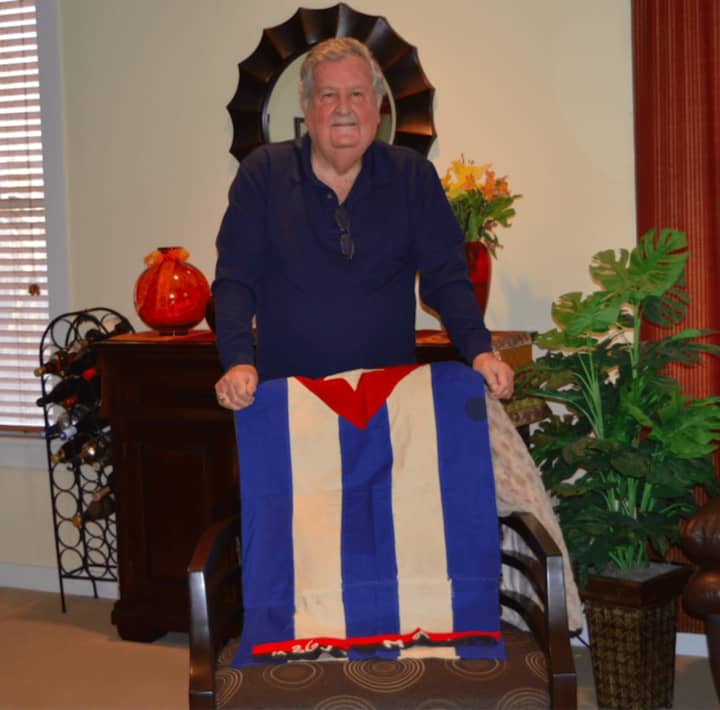“I had been saving it for years,” said Heres, who is 81 and has been banished from entering his homeland of Cuba for over 50 years due to his opposition to Castro’s Communist policies.
“When my daughter called me to tell me Castro had died, I knew it was finally time to open the bottle," Heres said.
With Castro’s death Nov. 25 at the age of 90, Heres felt it was time to tell the story of his involvement with Castro and of the events relating to the Cuban Revolution -- events that changed the course of Heres’ life.
In the late 1950s, Heres, who had been studying in the United States, returned to Cuba and joined a group of over 400 men in the Cuban Revolution, which aimed to overthrow then-President Fulgencio Batista.
Here originally supported Castro, but he eventually learned Castro was a Communist who didn’t want democracy in Cuba.
Shortly after learning this, “My wife and I left Cuba in a hurry. We had a confrontation with Castro and we were advised by the secretary of Che Guevara [a Marxist revolutionary allied with Castro] to leave as soon as possible,” Heres said.
If he hadn’t left when he did, Heres said he is sure he would have been executed.
Heres, a retired professor of computer systems at the University of Connecticut at Stamford and Norwalk Community College, has lived in the United States with his wife, Elsa, since 1960.
His intense hatred of Castro, who led Cuba for decades, has lasted a lifetime. "When my parents and brother died in Cuba, I was not allowed to go to their funerals," Heres said. "Many of my friends and neighbors were killed in Cuba — too many."
Despite Castro’s death, Heres feels nothing will change in Cuba.
“As long as the Communists are in power and as long as the people don’t have money to spend, the economy is not going to survive," he said.
“They’re so fanatically established in the Communist philosophy that they will never change."
Heres said Americans should be aware that Cuba’s hatred of the United States is intense. And he disapproved of President Barack Obama’s condolence message to Cuba about Castro’s death.
“I thought Obama’s message that he was sorry a great leader has died was very lame," Heres said.
He added, “Although I’m a Democrat, the message that (President-Elect Donald) Trump sent about Cuba — that he was a brutal communist dictator — is stronger and more like the way Cuban exiles feel."
Heres said he still yearns for a free Cuba.
“I would like to see the day where I can put my foot in Cuba as a free country with respect for human rights and Democracy,” he said. “I have been here 57 years waiting to see an opening and so far, nothing had happened.”
Heres is the author of two books on Castro -- “The Reluctant Revolutionary: A Personal Snapshot of the Cuban Revolution” and “Unpardonable Crimes: The Legacy of Fidel Castro.” Both books are available on Amazon.com.
Click here to follow Daily Voice Danbury and receive free news updates.




